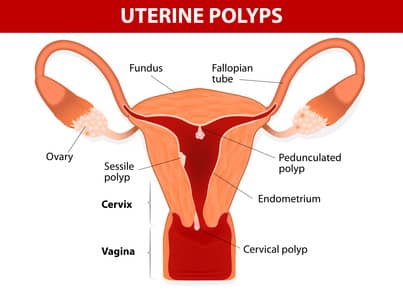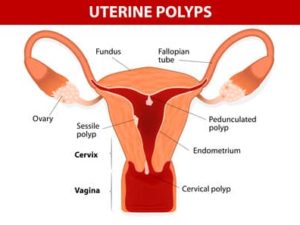
What is a Polyp?
Polyps are benign tumors of the uterus. They are a product of overproduction of the endometrium and are grown into the uterine cavity. They may appear in any women, or in those with high levels of estrogen, but it is not really clear why they are growing.
Polyps increase rapidly during pregnancy, using a contraceptive pill or using estrogen in menopause.
Although most polyps are not malignant, those that develop in perimenopausal women or menopause may be malignant. Polyps are common in women aged 40-50, but can also be found in younger women.
What are the risk factors for polyp growth?
- Obesity
- Unbalanced hypertension
- Perimenopause / menopause
- Certain medications to treat breast cancer
What are the common symptoms?
- Irregular bleeding
- Increased / elongated menstrual bleeding
- Bleeding after menopause
- Bleeding after intercourse
- Pelvic pain
- Infertility
- Miscarriages
How are polyps diagnosed?
The diagnosis begins with the most common symptoms, when the final approval is through:
- Vaginal ultrasound
- Ultrasound with liquid
- Hysteroscopy
How are polyps treated?
Treatment is performed by excision of the polyp by hysteroscopy (a tiny camera at the end of a long thin rod inserted into the uterus through the vagina and cervix).
Hysteroscopy is usually performed under general anesthesia as a day procedure, but can be done while you are awake. Small polyps, which are not sympathetic, do not require hysteroscopy, but should be followed by ultrasound every 6 months. Any polyp that causes any symptoms is recommended to be removed.
FAQs
What causes polyps?
Endometrial polyps may appear in any women, or in those with high levels of estrogen, but it is not really clear why they are growing. Possible risk factors are: Obesity, unbalanced hypertension, Perimenopause / menopause, Certain medications to treat breast cancer.

